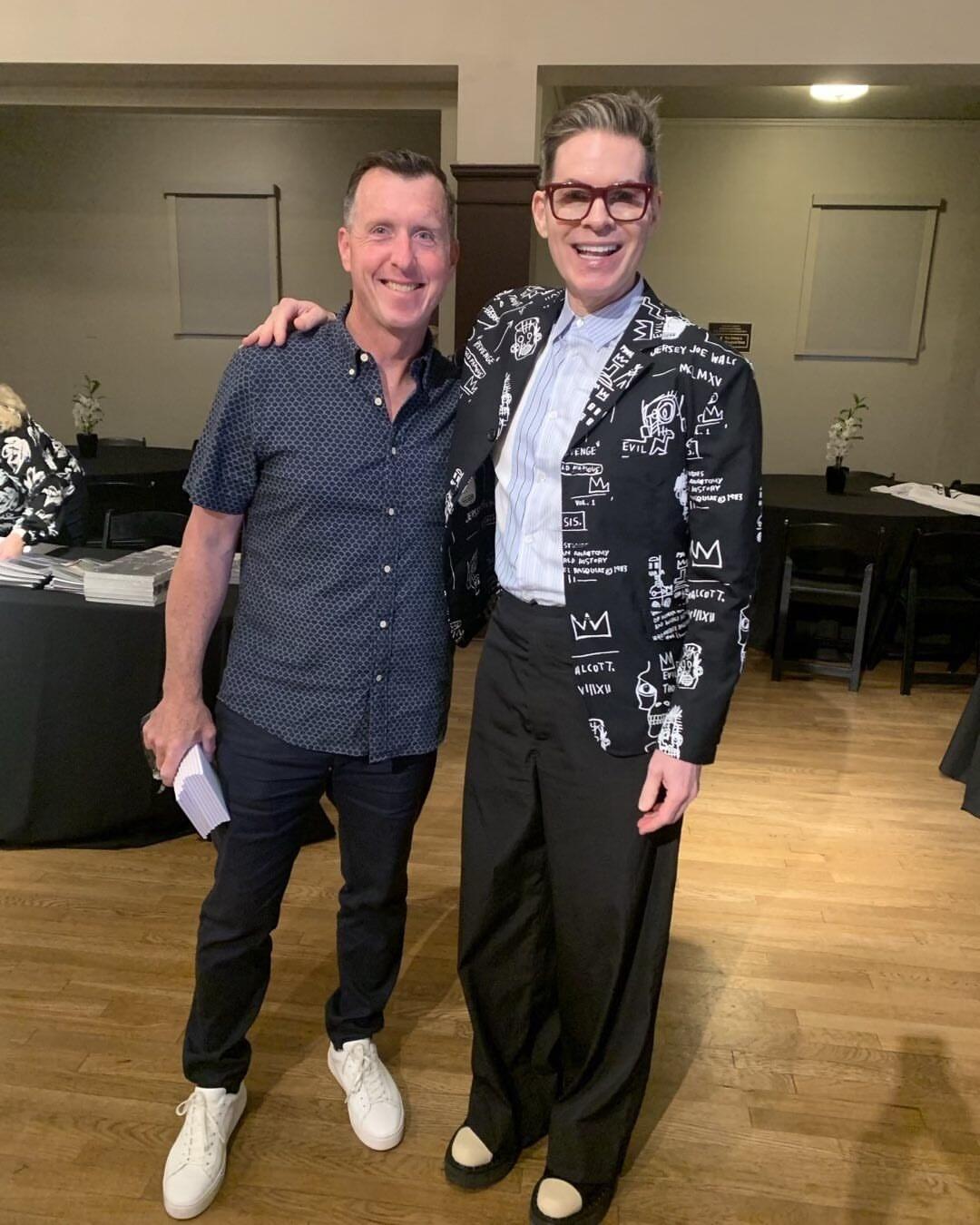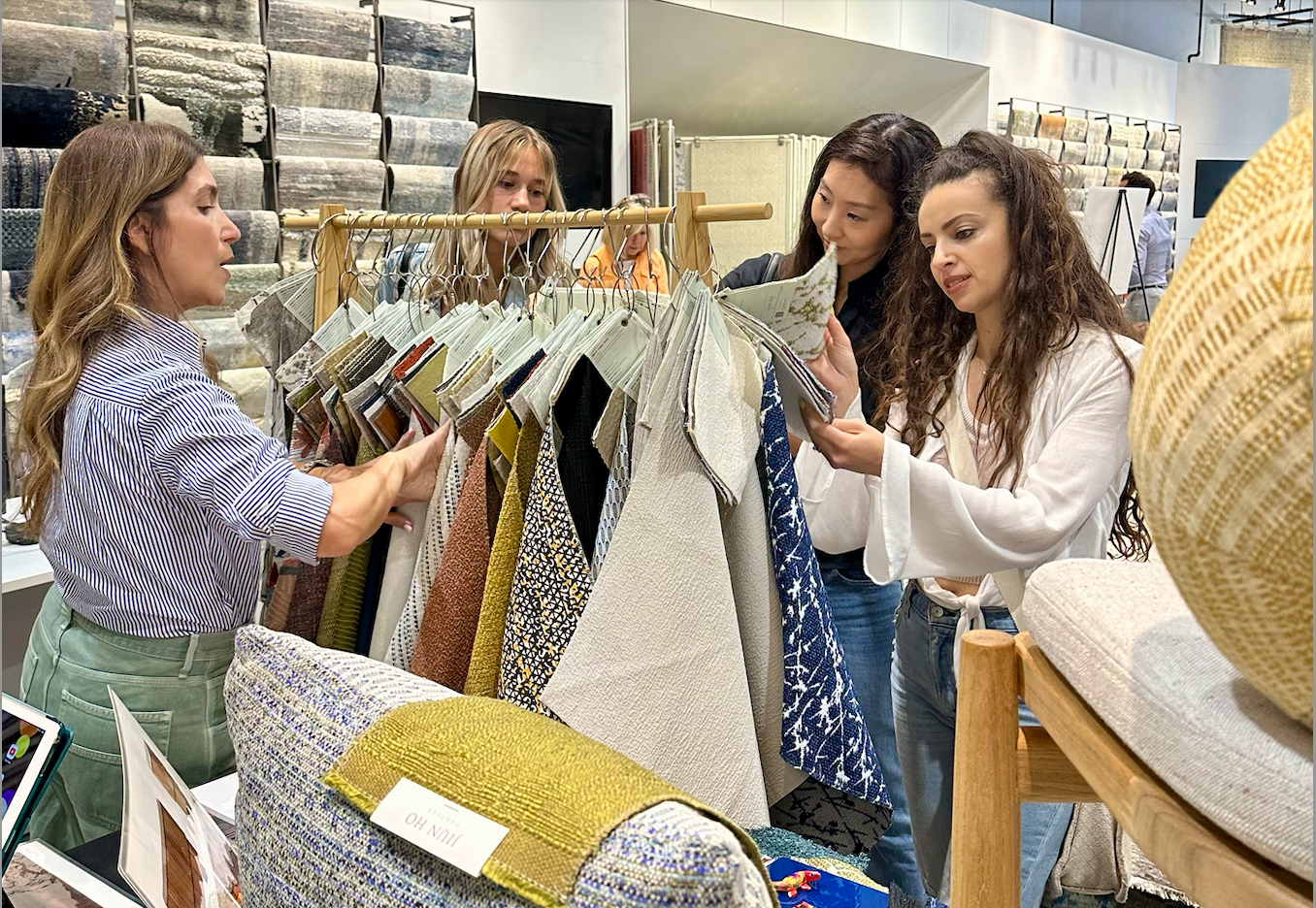Thomas Lavin and Jobi Blachy have jumped on the traveling showroom bandwagon. Lavin, whose eponymous company consists of multiline showrooms in Los Angeles and Laguna Niguel, and Blachy, the man behind luxury home brand Quintus, both have outposts in the Pacific Design Center. After noticing other multiline brands hosting successful trunk shows, the two decided to team up on one themselves. “I thought, ‘This is so interesting that [designers] would find it compelling enough to leave their offices [for a pop-up] when they tell us they’re so busy all the time,’” Blachy tells host Dennis Scully on the latest episode of The Business of Home Podcast. “I think it just points to the fact that we all have to be thinking differently about how we connect with designers—how we motivate them and get them interested and wanting to engage and learn more and see more product.”

The success of their first event prompted the duo to co-host other pop-ups and events across Southern California. They’ve also got their eyes on expansion, with plans to visit Las Vegas in the fall and Palm Spring after that. The two attribute the high turnout to the personal aspect of the format—designers get to meet with the makers who are building the product and network with their peers. “I think [they] came because we said, ‘This is not about product. This is about community. This is about conversation. This is about how can we support your business?’” says Lavin. “We chatted with designers, and they chatted among themselves about where they’re challenged, so they knew there would be a forum for them to share.”
Elsewhere in the episode, the two share why constantly releasing new products helps them stay ahead of copycats; the implications of the mansion tax and the writer’s strike for the L.A. design scene; and how they keep up with the increasingly digital industry.
Crucial insight: In Lavin’s and Blachy’s businesses, the Japanese business concept kaizen is at the heart of their ethos. “Kaizen is incremental adjustments over time. You’re not doing anything big, you’re not doing some earthquake magnitude change—you’re just doing a little bit all the time,” explains Lavin. “We continue to make ourselves ready, whether we’re going to experience an up cycle or a down cycle, [by] regularly adjusting ourselves for the market.” Under this principle, nimbleness is paramount for success and survival. “I think the more efficient we can become as operations, whether it’s a showroom or a manufacturing operation, the better we’re all going to be going forward,” adds Blachy. “Designers should be focusing on finding ways to be more efficient in the way they quote, place orders, do their drawings, whatever that might be.”
Key quote: “I think that this notion [of] bringing community together is really exciting for people,” says Lavin. “I think designers are sometimes challenged on how to justify the pricing for our product. By meeting the maker, they were able to understand the genesis of the production, what goes into everything, and why they should be presenting that to their clients—and how to justify it easily.”
This episode is sponsored by Loloi. Listen to the show below. If you like what you hear, subscribe on Apple Podcasts or Spotify.





























